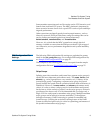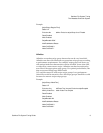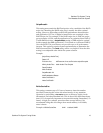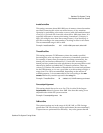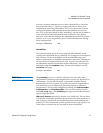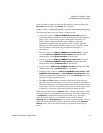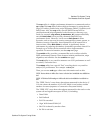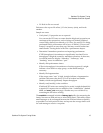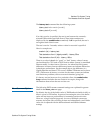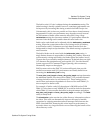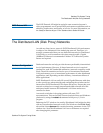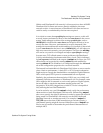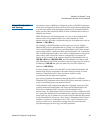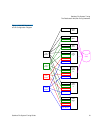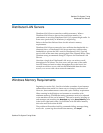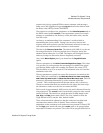
StorNext File System Tuning
The Metadata Controller System
StorNext File System Tuning Guide 16
The latency-test command has the following syntax:
latency-test index-number [seconds]
latency-test all [seconds]
If an index-number is specified, the test is run between the currently-
selected FSM and the specified client. (Client index numbers are
displayed by the cvadmin who command). If all is specified, the test is
run against each client in turn.
The test is run for 2 seconds, unless a value for seconds is specified.
Here is a sample run:
snadmin (lsi) > latency-test
Test started on client 1 (bigsky-node2)... latency 55us
Test started on client 2 (k4)... latency 163us
There is no rule-of-thumb for “good” or “bad” latency values. Latency
can be affected by CPU load or SNFS load on either system, by unrelated
Ethernet traffic, or other factors. However, for otherwise idle systems,
differences in latency between different systems can indicate differences
in hardware performance. (In the example above, the difference is a
Gigabit Ethernet and faster CPU versus a 100BaseT Ethernet and a slower
CPU.) Differences in latency over time for the same system can indicate
new hardware problems, such as a network interface going bad.
If a latency test has been run for a particular client, the cvadmin who
long command includes the test results in its output, along with
information about when the test was last run.
Mount Command Options0
The following SNFS mount command settings are explained in greater
detail in the
mount_cvfs man page.
By default, the size of the buffer cache is 32MB and each buffer is 64K, so
there is a total of 512 buffers. In general, increasing the size of the buffer
cache will not improve performance for streaming reads and writes.
However, a large cache helps greatly in cases of multiple concurrent
streams, and where files are being written and subsequently read. Buffer
cache size is adjusted with the buffercachemin and buffercachemax
settings.



